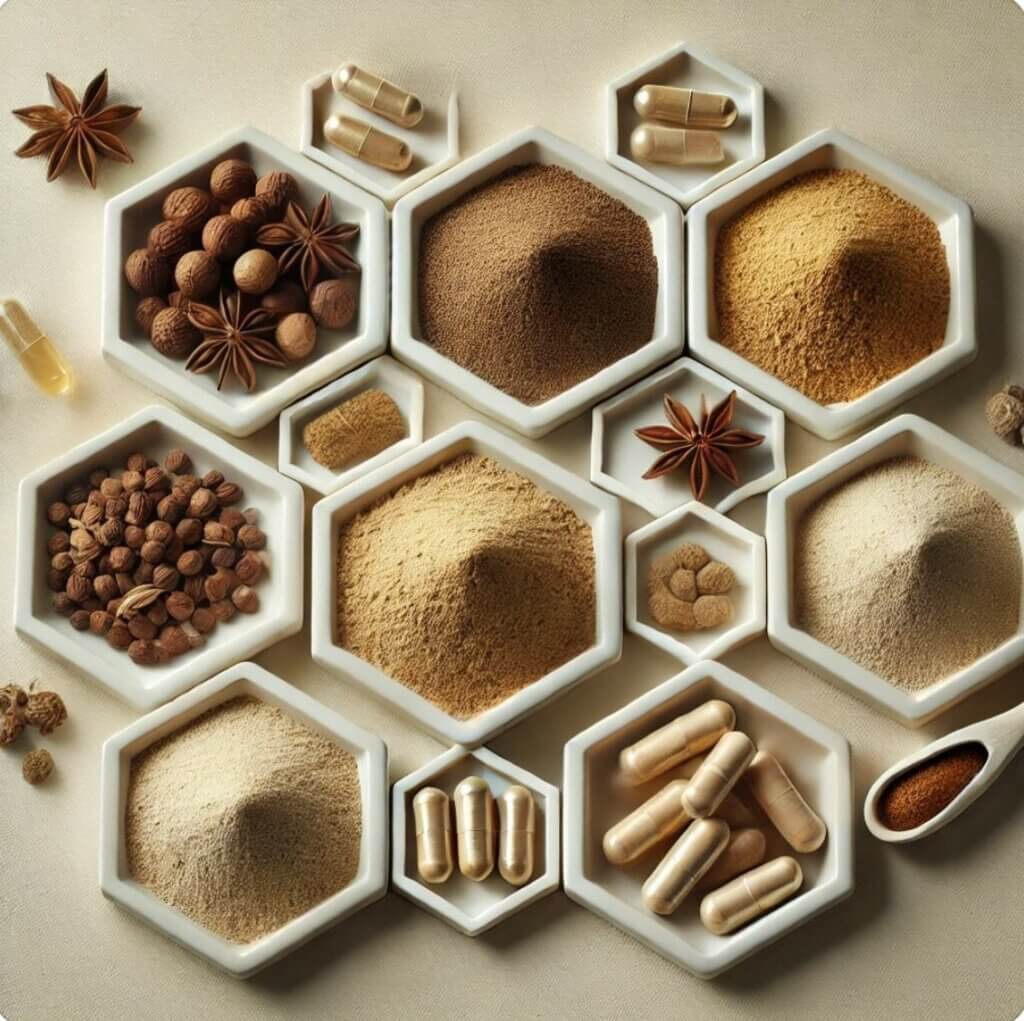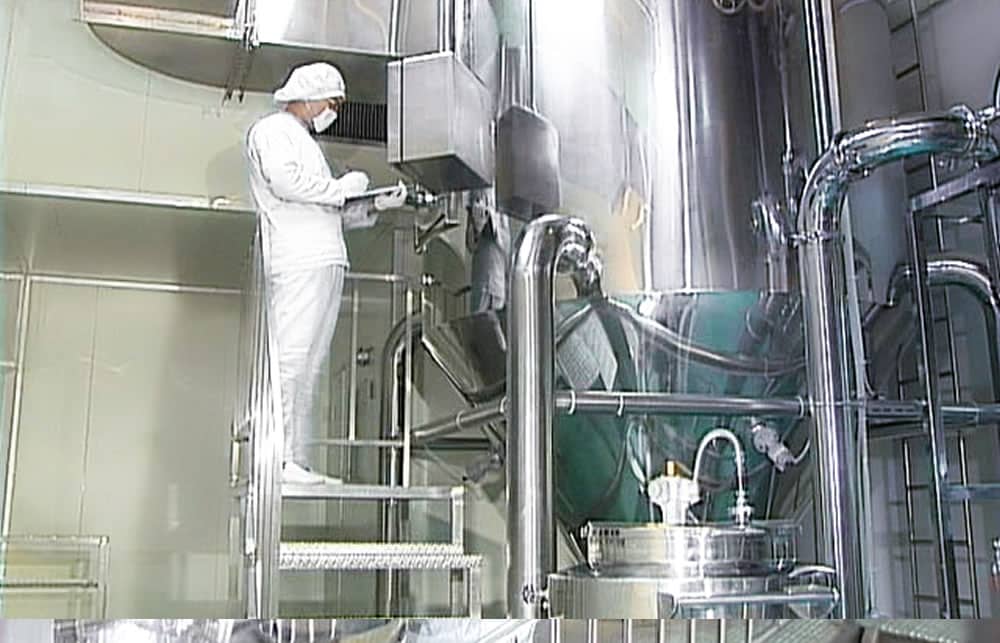
Chinese Herbal Medicine
Rooted in Tradition. Customized for You.
Chinese Herbal Medicine (CHM) is one of the most time-tested and effective healing systems in the world. As a core component of Traditional Chinese Medicine (TCM), it offers a personalized, holistic approach to health that has evolved over thousands of years.
Rather than simply managing symptoms, CHM addresses the root causes of imbalance—working with your body’s own healing capacity to restore harmony in both body and mind.
To schedule an Herbal Medicine consultation, please contact Jess directly at 410-562-2051 or by email at jess@jessfaulkner.com
What Makes CHM Unique
- Treats the whole person, not just the diagnosis
- Custom-tailored to your unique constitution and condition
- Addresses both symptoms and underlying imbalances
- Aims to restore balance, resilience, and vitality over time
Evidence-Based & Effective
Chinese Herbal Medicine is supported by both clinical experience and modern research. It can be used safely alongside Western medicine and is often highly effective for:
- Respiratory conditions
- Cardiovascular support
- Nervous system regulation
- Muscular and skeletal issues
- Digestive disorders
- Urogenital and reproductive health
- Endocrine balance
- Immune system support
How Chinese Herbs Work
Herbal formulas are designed to:
- Enhance circulation and reduce inflammation
- Regulate digestion and calm the nervous system
- Support detoxification and immune function
- Re-establish balance throughout the organ systems
- Encourage long-term healing from the inside out
About the Herbs
Chinese Herbal Medicine uses a rich variety of plant-based substances, with over 450 commonly used herbs in the modern pharmacopeia.
- Most formulas are based on roots, leaves, flowers, or barks
- Occasionally, minerals or ethically sourced animal products are included when clinically appropriate
- Herbs are combined into formulas that create a synergistic effect, amplifying benefits while minimizing side effects
Custom Formulas, Personalized for You
Every formula is tailored to your individual needs—and evolves as your condition improves.
These formulas are designed to:
- Provide symptom relief
- Target the root cause of imbalance
- Support long-term health, energy, and resilience
Three Phases of Herbal Treatment
Phase 1: Relief
Duration: 1–2 months
- Focus on alleviating primary symptoms
- Expected improvement: 50–85%
Phase 2: Stabilization
Duration: Months 2–4
- Addresses root causes
- Goal: Sustain 85%+ improvement and prevent relapse
Phase 3: Maintenance
Begins after Month 4
- Strengthens immunity and stabilizes health
- Supports continued vitality and prevents future illness
What You Can Expect
- Acute conditions: noticeable improvement in 1–3 days
- Chronic conditions: initial benefits in about 4 weeks
- Full treatment: 3–9 months depending on severity and response
Taking Your Herbal Formula – Granules
We use modern, pharmaceutical-grade granules: concentrated powders made from raw herbs.

Why Granules?
- Convenient and effective
- Dissolve easily in warm water
- Preserve therapeutic benefits
- No cooking or prep required
How to Take
- Follow the exact dose prescribed
- 2–3 times daily, ideally on an empty stomach
- If sensitive, take with food
- Drink plenty of water throughout the day
- Keep herbs 2+ hours apart from prescription medications
Two Easy Methods
- Dissolve & Drink: Mix with hot water, stir, and sip like tea
- Sublingual: Place granules under the tongue and swallow with water
Temporary Adjustment Symptoms
As your body rebalances, you may notice:
- Bloating or gas
- Loose stools or constipation
- Increased urination or sweating
- Menstrual changes (e.g., more complete uterine shedding)
These are usually mild and temporary—lasting only a few days to a week.
When to Contact Me
Please reach out if you experience:
- New or worsening symptoms
- Persistent digestive issues
- Significant changes in sleep, mood, or menstruation
- Headaches or spontaneous sweating
Safety & Quality Assurance
Practitioner Oversight
CHM is safe when prescribed by a trained and licensed practitioner. You should always disclose:
- All medications and supplements you take
- If you are pregnant or trying to conceive
- Any allergies or ethical preferences (e.g., vegan or vegetarian)

Sourcing Standards
I use only:
- Pharmaceutical-grade herbs
- Trusted, professional suppliers – Evergreen Herbs
- Products tested for purity, safety, and potency, including screening for heavy metals, pesticides, and contaminants
Communication & Consent
Your Role in the Healing Process:
- Provide full and accurate health information
- Take herbs exactly as prescribed
- Communicate any concerns promptly
- Attend scheduled appointments on time
My Commitment to You:
- Provide safe, effective, and ethical care
- Adjust your treatment based on your needs
- Support your healing process with integrity
- Be available for questions and concerns between visits
Monthly Herbal Treatment Plan
Cost: $400/month
Includes:
- Four weekly consultations
- Custom herbal formulas & modifications
- Ongoing communication between sessions
- 30-day reassessment to track progress
Please note: Services begin immediately and are non-refundable once the month starts.
Ongoing Support After Initial Treatment
After your first 4–6 months of care, you may continue with:
- $50/week, billed monthly
- Continued access to personalized formulas
- Monthly check-ins
- Optional formula adjustments ($50 fee if outside a regular check-in)
- Flexible pause or continuation based on your needs
This structure ensures you receive ongoing, high-value care as your health continues to evolve
Have questions or want to get started? Let’s connect. I’d love to support your healing with a personalized herbal plan.
Email jess@jessfaulkner.com or Call/Text 410-562-2051

Health is not just the absence of symptoms, it is being in state of balance ~ of Mind, Body & Spirit
The body/mind should be viewed as a whole, where our different organ systems, functions and process work together to keep homeostatic balance. By promoting the natural stimulation and inhibition functions of the organ systems, Traditional Chinese & East Asian Medicine (TCEAM) encourages nourishment, repair and maintenance of the whole body, mind and spirit.



 My path to oriental medicine came through my experience with massage & bodywork. For over 20 years I have been studying and practicing massage therapy, but it was when I discovered Shiatsu (acupressure), that I realized there was something very powerful about Chinese Medicine…
My path to oriental medicine came through my experience with massage & bodywork. For over 20 years I have been studying and practicing massage therapy, but it was when I discovered Shiatsu (acupressure), that I realized there was something very powerful about Chinese Medicine…